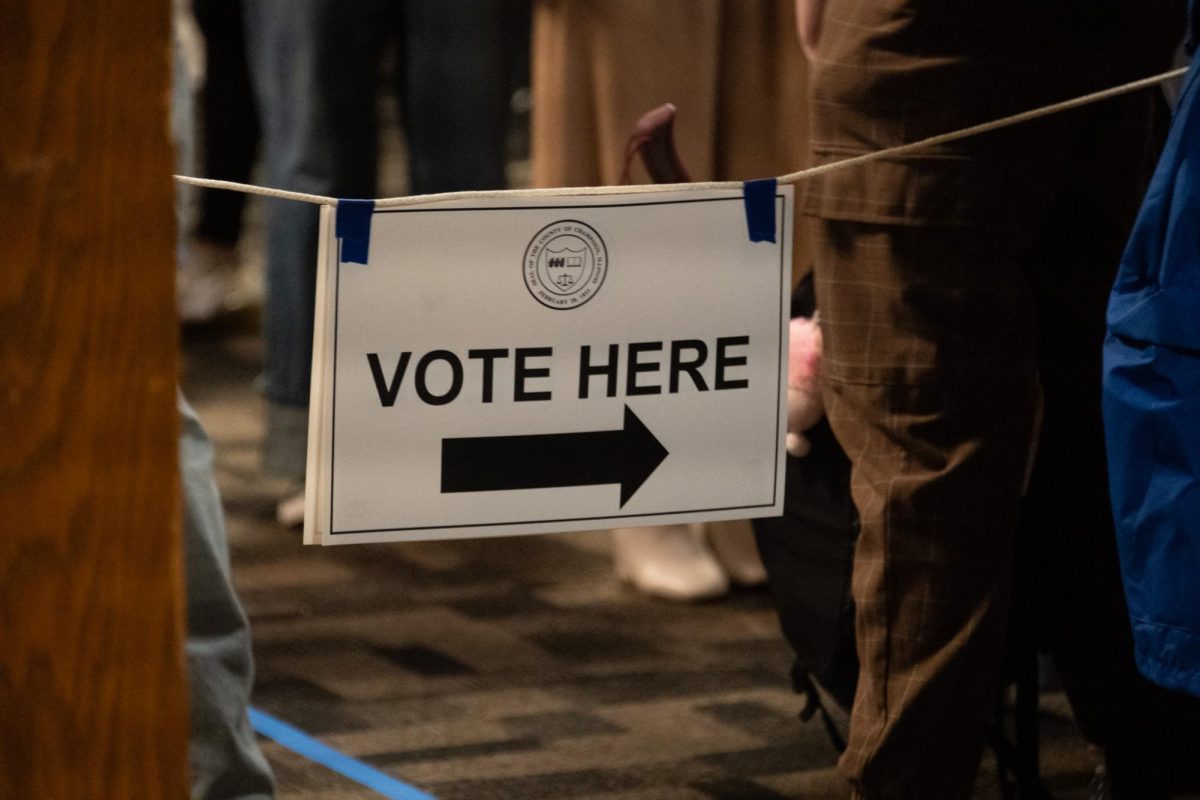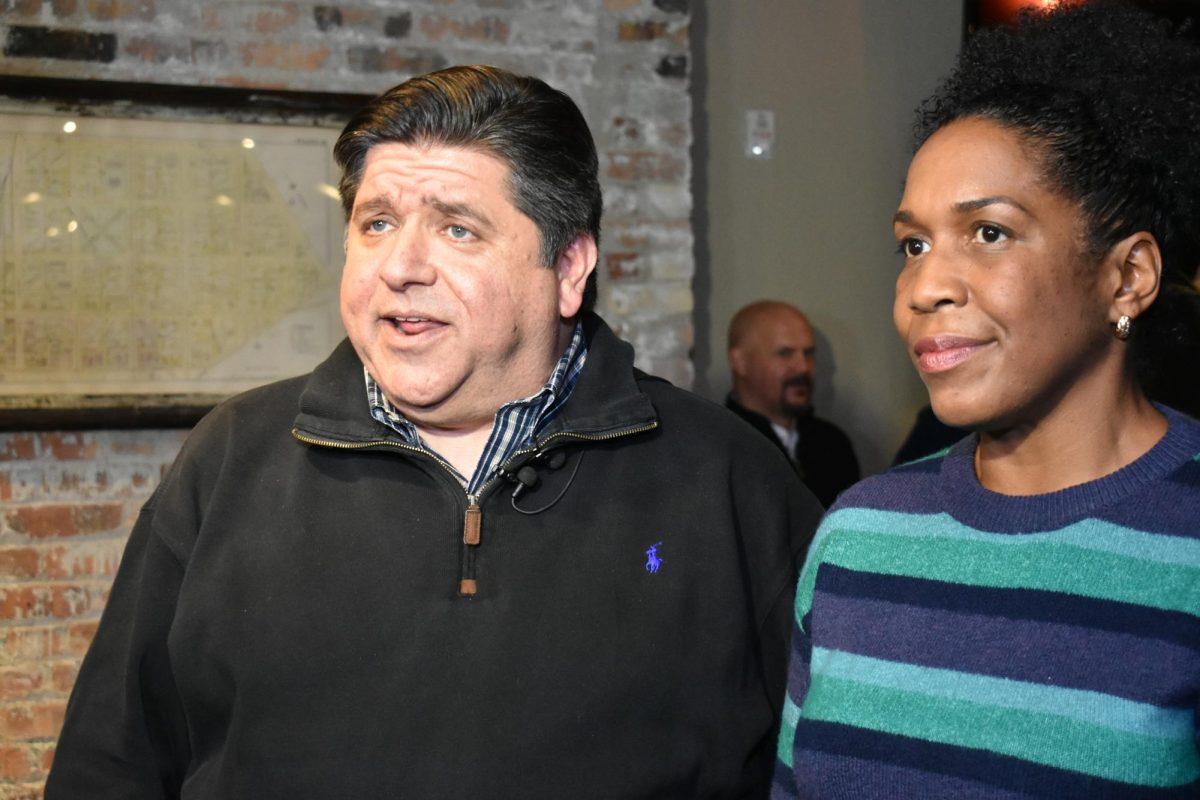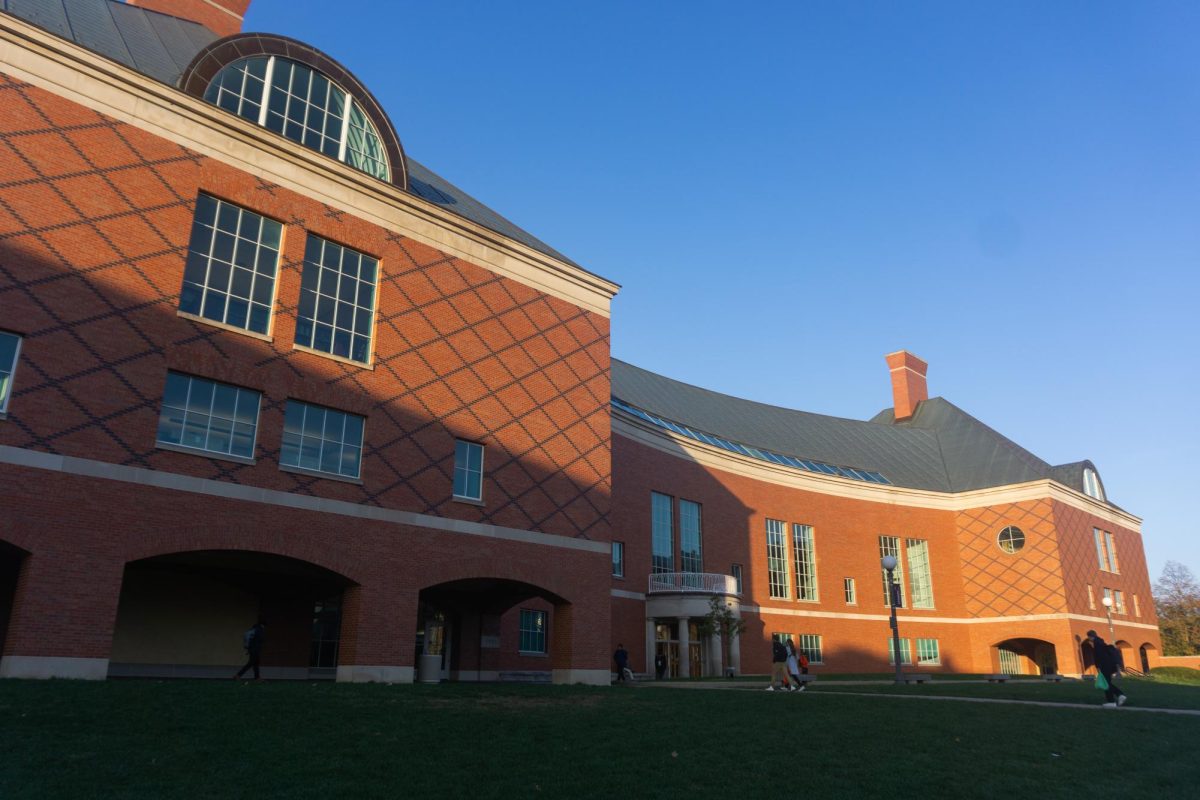The 2024 presidential election highlighted how media coverage and communication strategies, from online betting to premature electoral college broadcasts, shaped voter perceptions and turnout.
Scott Althaus, director of the Cline Center for Advanced Social Research at the University, explores how media and communication strategies shape electoral outcomes in his studies. Althaus shared insights into how campaign and media tactics, along with emerging technologies, influence electoral outcomes and voter engagement.
Althaus highlighted concerns about the influence of premature electoral projections on voter turnout. Notably, there has been concern regarding the impact of them for “many years” in past United States elections.
Elaborating on the evolution of campaign strategies, Althaus explained that the focus has shifted from trying to persuade undecided voters.
“It’s moved much more towards mobilizing like-minded voters who already agree with one candidate … that’s happened over the last 30 years in the U.S., and we’ve become very politically polarized,” Althaus said.
Get The Daily Illini in your inbox!
According to Governance Studies at Brookings, younger voters present a unique opportunity for campaigns, as they are more likely to engage with persuasive messaging on social media due to their limited political experience.
He also noted that advancements in early and absentee voting may lessen the potential impact of these errors.
“A higher proportion of potential voters have already cast their ballot by the time we get to the late hours before the polls close,” Althaus said.
Despite this, premature announcements might still sway traditional voters standing in long lines at campus voting locations. Kaushik Pulgari, senior in LAS, reflected on these concerns from a student’s perspective.
“It’s so easy to get overwhelmed by the sheer volume of information, especially when it feels like some outlets prioritize being first over being accurate,” Kaushik said. “The constant updates from betting websites and different Instagram posts made me debate whether these long lines were worth it.”
These concerns are heightened in light of events just before Election Day. A local ABC affiliate, WNEP-TV, mistakenly aired simulated election results showing Vice President Kamala Harris defeating President-elect Donald Trump in Pennsylvania — a pivotal swing state — before Election Day.
The graphic, which appeared during the station’s broadcast of the Formula 1 Mexico Grand Prix, displayed Harris securing 52% of the vote to Trump’s 47%, with 100% of precincts reporting.
The station later clarified that the numbers were randomly generated as part of a routine equipment test and not reflective of any actual vote count. Still, the incident ignited conspiracy theories about election integrity on social media.
Jack LaMorte, senior in LAS and president of Illini Republicans, said that while he believes the error was not intentional, the premature broadcast could still have undermined voter confidence, particularly in swing states like Pennsylvania.
“I don’t really think there’s any nefarious meaning behind what they did,” LaMorte said. “I don’t think they’re trying to really sway voters … They were probably just testing a graphic. Honestly, it could dissuade voters from showing up to the polls. If they think that … that’s how the election will go.”
New technology, like the integration of artificial intelligence into campaign strategies, represents a transformative shift in political communication. AI’s ability to generate tailored messages quickly allows campaigns to test multiple variations and optimize their strategies.
Althaus stressed the need for rigorous analysis to understand the impact of new technologies and campaign strategies on voter behavior, particularly among younger voters like university students.
“It remains to be seen what differences AI-created content will make … This has been the first presidential election where AI-created content played a fairly substantial role,” Althaus said.
Althaus mentioned that while concerns about early projections or emerging technologies like AI influencing elections are valid, such effects are generally small and mitigated by factors like early voting trends and media fragmentation. As political strategies and technologies evolve, Althaus stresses that ongoing “survey data and longitudinal studies” remain vital to understanding their implications for democratic processes and voter engagement.









